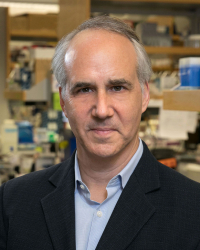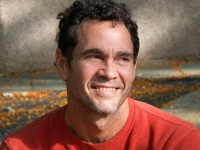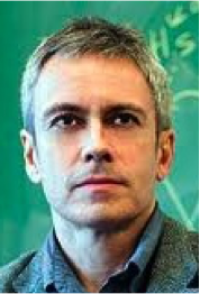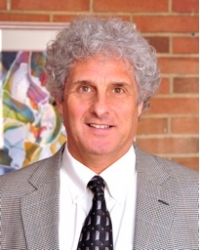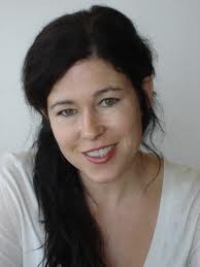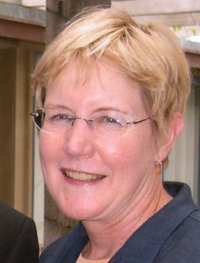Human Origins: Lessons from Autism Spectrum Disorders
Biographical Sketches: Co-Chairs
University of California, Los Angeles
Daniel Geschwind is the Gordon and Virginia MacDonald Distinguished Professor of Neurology, Psychiatry and Human Genetics at UCLA and serves on the CARTA External Advisory Board. In his capacity as Senior Associate Dean and Associate Vice Chancellor of Precision Health, he leads the Institute for Precision Health (IPH) at UCLA. In his laboratory, his group has pioneered the application of systems biology methods in neurologic and psychiatric disease, with a focus on autism spectrum disorders (ASD) and neurodegenerative conditions. His laboratory has made major contributions to identifying genetic causes of ASD, defining the molecular pathology of ASD and allied psychiatric disorders, and has worked to increase diversity in ASD research. His work in dementia is focused on the mechanisms of tauopathies, where his laboratory is developing novel therapeutic approaches.
Dr. Geschwind sits on editorial boards of Cell, Science and Neuron, and is among the highest cited neurologists in the world. He has received several awards for his laboratory’s work including the American Neurological Association (ANA) Derek Denny-Brown Neurological Scholar Award, most recently the Society of Biological Psychiatry Gold Medal Award and the American Academy of Neurology’s 2022 Cotzias Lecture and Award and is an elected Member of the American Association of Physicians and the National Academy of Medicine.
University of California, San Diego
Jonathan Sebat is an associate professor of psychiatry and cellular and molecular medicine at UC San Diego, and chief of Beyster Center for Molecular Genomics of Neuropsychiatric Diseases. Dr. Sebat’s research focus is large-scale differences in gene copy number, known as copy number variants (CNVs), which are a significant source of genetic variation and an important contributor to disease risk in humans. Dr. Sebat’s laboratory is interested in how CNVs and other variation within in the human genome contribute to mental illness. His goal is to identify genes related to psychiatric disorders and to determine how genetic variants impact the function of genes and corresponding cellular pathways. Dr. Sebat’s experimental approach is to use high-resolution microarray platforms to screen the genomes of patients for CNVs and to test the association of these genetic variants with disease in families and in cohorts of patients and healthy controls. Findings from several studies support a role for CNVs in autism, schizophrenia and bipolar disorder. In addition, multiple genomic regions have been identified that harbor rare mutations that substantially increase disease risk. He is interested in further understanding the functional and phenotypic consequences of these mutations in humans. CNVs that result in the disruption of a single gene may produce an altered transcript. Larger rearrangements that alter the dosage of multiple genes may result in altered levels of gene expression. Dr. Sebat studies these processes experimentally in human cells. By understanding the biological processes related to psychiatric disorders and by characterizing how these processes are disrupted in humans, he hopes to enhance the diagnosis and treatment of patients.
Biographical Sketches: Speakers
Cambridge University
Simon Baron-Cohen is professor of developmental psychopathology at the University of Cambridge and Fellow at Trinity College, Cambridge. He is director of the Autism Research Centre (ARC) in Cambridge. He holds degrees in human sciences from New College, Oxford, a PhD in psychology from UCL, and an M.Phil in clinical psychology at the Institute of Psychiatry. He held lectureships in both of these departments in London before moving to Cambridge in 1994. He is also director of CLASS (Cambridge Lifespan Asperger Syndrome Service), a clinic for adults with suspected AS.
He is author of Mindblindness (MIT Press, 1995), The Essential Difference: Men, Women and the Extreme Male Brain (Penguin UK/Basic Books, 2003), Zero Degrees of Empathy (Penguin UK, 2011, and published under The Science of Evil by Basic Books, US), and Prenatal Testosterone in Mind (MIT Press, 2005). He has edited a number of scholarly anthologies, including Understanding Other Minds (OUP, 1993, 2001), The Maladapted Mind (Erlbaum, 1997) and Synaesthesia (Blackwells, 1997).
He has also written books for parents and teachers such as Autism: The Facts (OUP, 1993), Tourette Syndrome: The Facts (OUP, 1998), and Teaching Children with Autism to Mind Read (Wiley, 1998). He is author of the DVD-ROM Mind Reading: an Interactive Guide to Emotions (Jessica Kingsley Ltd, 2003) that was nominated for a BAFTA award for Best Off-Line Learning.
He has been awarded prizes from the American Psychological Association, the British Association for the Advancement of Science (BA), and the British Psychological Society (BPS) for his research into autism. He has been president of the Psychology Section of the BA, vice president of the International Society for Autism Research, and the National Autistic Society, and received the 2006 Presidents' Award for Distinguished Contributions to Psychological Knowledge from the BPS.
Simon Baron-Cohen is an editor-in-chief of the online open access journal Molecular Autism.
University of California, San Diego
Eric Courchesne is a professor of neurosciences at UC San Diego. He is a leading expert on brain structural and functional abnormalities associated with autism. His research has identified biobehavioral markers of autism that will allow for earlier diagnosis and treatment leading to better clinical outcomes by integrating behavioral, developmental, genetic, neuroanatomical and neurofunctional findings. His studies have identified structures that are abnormal at infancy in autism and elucidated patterns of abnormal growth from infancy through adulthood. His neuroimaging studies of autism were named to the Top Ten Autism Research Studies of 2010 and 2011 by the IACC. His most recent studies discovered in prefrontal cortex in young autistic children a 67% excess in neuron number, dysregulation of genetic mechanisms that control neuron numbers and patterning, and cellular and laminar defects.
Simon Fraser University
Dr. Bernie Crespi is an evolutionary biologist whose work focuses at the interfaces of evolutionary genetics, social behavior, psychiatry, psychology and neuroscience. He received his PhD from the University of Michigan in Ann Arbor, working with William D. Hamilton and Richard D. Alexander, followed by post-doctoral positions at the University of New South Wales, the University of Oxford, and Cornell University. He took up a professorship at Simon Fraser University in Vancouver, British Columbia in 1992. Bernie became interested in studying autism upon realizing that evolutionary principles and tools had yet to be applied to understanding its causes. His laboratory is currently collecting data, from non-clinical populations, on autism risk and schizophrenia risk gene SNPs, and methylation of selected genes, in relation to measures of cognitive performance and scores on autism spectrum and schizotypy questionnaires.
UCLA
Mirella Dapretto is a professor in the UCLA Department of Psychiatry and Biobehavioral Sciences and currently the director of the FPR-UCLA Center for Culture, Brain, and Development. After receiving a Ph.D. in developmental psychology from the UCLA with a minor in behavioral neuroscience, Dr. Dapretto acquired expertise in neuroimaging methods – particularly functional magnetic resonance imaging (fMRI) – as a postdoctoral fellow at the UCLA Ahmanson-Lovelace Brain Mapping Center. Since joining the UCLA faculty in 1999, she has been the recipient of several awards, including NIH funding to study the neural networks associated with language functions in typically-developing children, and several grants to study the neural basis of the socio-communicative impairments observed in autism (funded by the Cure Autism Now foundation, the M.I.N.D. Research Institute at UC Davis, the National Alliance for Autism Research, and Autism Speaks). Over the past 5 years, Dr. Dapretto served as the PI of the imaging project of the first UCLA Autism Center of Excellence (ACE) funded by NIH (Project 3). As part of the recently funded new UCLA ACE (2012-2017), Dr. Dapretto serves as the PI of the imaging project (Project 4), as well as Co-PI of a project in infants at ultra high-risk for autism (Project 1 ). In addition, Dr. Dapretto is also a co-investigator on several large-scale collaborative studies headed by Drs. Susan Bookheimer, Dan Geschwind, Elizabeth Sowell, and Danny Wang, as well as a recently funded multi-site ACE Network (PI: Pelphrey; participating sites: Yale, UCLA, Harvard, University of Washington). Capitalizing on her dual training as a developmental psychologist and a neuroscientist, Dr. Dapretto’s research combines neuroimaging, behavioral, and genetic data to better characterize typical and atypical brain function. Her work is consistently published in prestigious journals such as Biological Psychiatry, Brain, Journal of Neuroscience, Nature Neuroscience, and Neuron.
UC San Diego
Pascal Gagneux is CARTA's Executive Co-Director, a Professor of Pathology and Anthropology, and the Department Chair of Anthropology at UC San Diego. He is interested in the evolutionary mechanisms responsible for generating and maintaining primate molecular diversity. The Gagneux laboratory studies cell-surface molecules in closely related primates species. His focus is on glycans, the oligosaccharides attached to glycolipids and glycoproteins of the surfaces of every cell and also secreted into the extra-cellular matrix. Gagneux's laboratory is exploring the roles of molecular diversity in protecting populations from pathogens as well as potential consequences for reproductive compatibility. Dr. Gagneux’s interest is in how glycan evolution is shaped by constraints from endogenous biochemistry and exogenous, pathogen-mediated natural selection, but could also have consequences for sexual selection. Dr. Gagneux has studied the behavioral ecology of wild chimpanzees in the Taï Forest, Ivory Coast, population genetics of West African chimpanzees, and differences in sialic acid biology between humans and great apes with special consideration of their differing pathogen regimes. In 2011, while Associate Director of CARTA, Dr. Gagneux helped to establish a graduate specialization in Anthropogeny at UC San Diego. This wholly unique graduate specialization is offered through eight participating graduate programs in the social and natural sciences at UC San Diego.
University of Washington
Andrew N. Meltzoff holds the Job and Gertrud Tamaki Endowed Chair and is the Co-Director of the University of Washington Institute for Learning & Brain Sciences. A graduate of Harvard University, with a PhD from Oxford University, he is an internationally renowned expert on infant and child development. His discoveries about infant imitation have revolutionized our understanding of early cognition, personality, and brain development. His research on social-emotional development and children’s understanding of other people has helped shape policy and practice. Dr. Meltzoff's 20 years of research on young children has had far-reaching implications for cognitive science, especially for ideas about memory and its development; for brain science, especially for ideas about common coding and shared neural circuits for perception and action; and for early education and parenting, particularly for ideas about the importance of role models, both adults and peers, in child development. He is the co-author of two books about early learning and the brain: The Scientist in the Crib: What Early Learning Tells Us about the Mind (Morrow Press, 2000) and Words, Thoughts and Theories (MIT Press, 1997). He is also co-editor of The Imitative Mind: Development, Evolution and Brain Bases (Cambridge University Press, 2002), a unique, multidisciplinary volume combining brain science, evolutionary theory, and developmental psychology.
UC San Diego School of Medicine
Karen Pierce is the director of clinical research and the director of functional brain imaging at the UC San Diego Autism Center of Excellence (ACE). Dr. Pierce has been in the field of autism research for over 20 years and began her career studying ways to treat autism through various behavioral therapies. After a decade of clinical research, she turned her attention to the brain and received a training award from the NIMH to respecialize in functional brain imaging. Dr. Pierce’s past functional brain imaging research focused on understanding the neural substrates of abnormal social processing in young children and adults with autism. Her research suggested that the brain region involved in face processing, the so-called “fusiform face area” (FFA), is abnormal when individuals with autism look at the faces of strangers, but engages more normally when viewing the faces of loved ones such as their mother. This cumulative body of research led to the idea that it may be the systems that modulate the fusiform face area that are abnormal in autism, not the FFA per se. Within the past few years Dr. Pierce has focused her efforts exclusively on the 12-36 month age period and engages in research aimed at discovering an early clinical and neurobiological signature of autism. Her goal is to use functional magnetic resonance image (fMRI) to discover a functional brain signature of infants at-risk for autism. Dr. Pierce also uses eye tracking to discover early signatures of eye gaze patterns that may demonstrate elevated risk for autism in infants.
University of California, San Diego
V.S. Ramachandran is Director of the Center for Brain and Cognition and a distinguished professor with the psychology and neurosciences programs at UC San Diego, as well as an adjunct professor of biology at the Salk Institute. Ramachandran initially trained as a doctor from Stanley Medical College, India, and subsequently obtained a Ph.D. from Trinity College at the University of Cambridge. Ramachandran’s early work was on visual perception, but he is best known for his experiments in behavioral neurology, which despite their apparent simplicity, have had a profound impact on the way we think about the brain. Ramachandran has published over 180 papers in scientific journals (including five invited review articles in Scientific American). His awards and honors include fellowships at All Souls College, Oxford and Stanford University; The Henry Dale medal awarded by the Royal Institution, which also elected him honorary life member; the CU Ariens Kappers medal from the Royal Nederlands Academy of Sciences; and awarded India's third highest honorific title "Padma Bhushan" by the president of India. He gave the annul BBC Reith Lectures in the UK and the Gifford Lectures in Glasgow. In 2011, TIME Magazine named him one of the 100 most influential people in the world.
UC San Diego
Margaret Schoeninger is Distinguished Professor Emerita of Anthropology at UC San Diego, a Research Archaeologist in the Glenn Black Laboratory of Archaeology at Indiana University, and Emerita Co-Director of CARTA. She has done fieldwork in North America, Mexico, Pakistan, India, Kenya, and Tanzania as well as laboratory research on carbon, nitrogen, and oxygen stable isotope ratio analysis in biological tissues and food component analysis of traditional foods. Her major interest is in the evolution of human diet particularly as it informs our understanding of the appearance and evolution of the human lineage.
